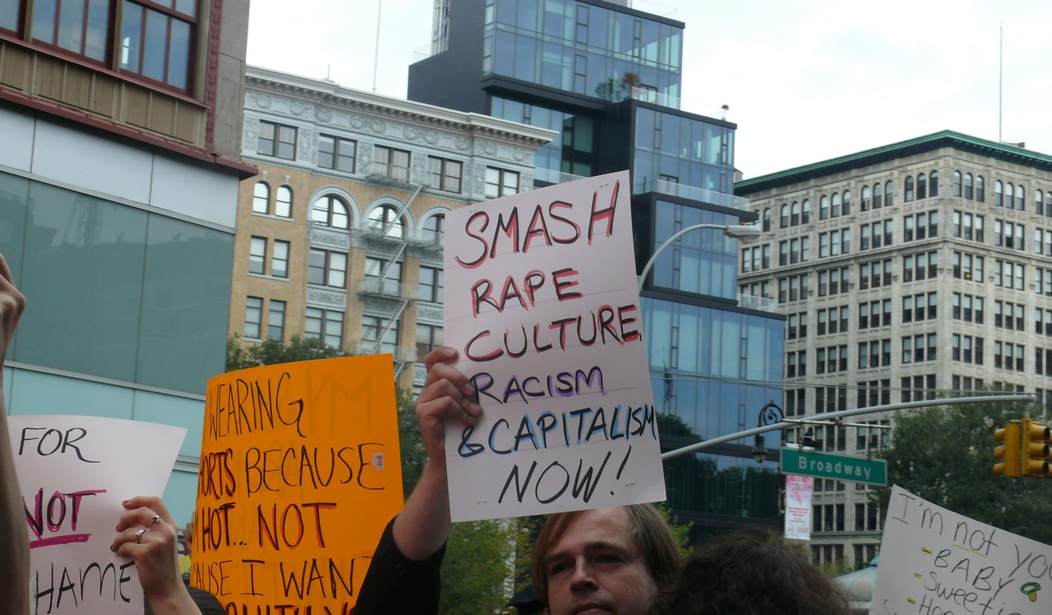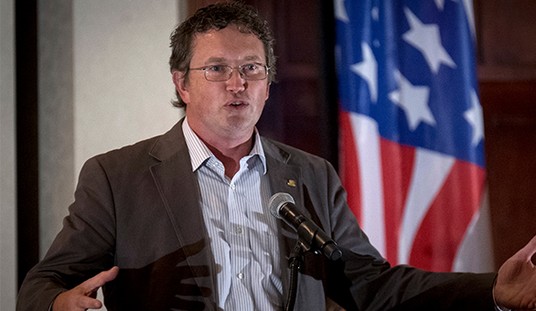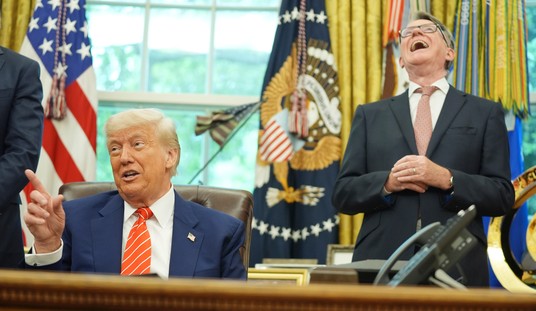When young men are accused of sexual assault on a college campus, should they be entitled to due process and a fair trial? Should they be able to show evidence that shows their innocence? Should they be able to cross-examine their accuser?
For students at most colleges, the answer is a resounding no. No, they’re not able to show text messages that might get them off the hook. No, they can’t cross-examine their accuser. No, they don’t have the right to a fair trial.
Because college courts are not criminal courts, the traditional conventions of the law do not apply — resulting in dozens of young men who are accused of sexual assault being unfairly punished by colleges every year and numerous calls from concerned parents, lawyers, and advocates to fix the situation.
But while many people understand that the campus court system is deeply stacked against young men, feminist activists continue to push back against due process protections for young men, most recently Annaleigh E. Curtis, a lawyer in private practice.
Curtis published “Due Process Demands as Propaganda: The Rhetoric of Title IX Opposition” in the most recent issue of Yale Journal of Law and the Humanities, where she argued that “due process demands function as propaganda” under the regime of “rape culture” on college campuses.
“Rape culture” is a feminist theory which posits that rape is so pervasive in society that one in five women are sexually assaulted while in college, and that young men condone or even encourage rape as a way to control women.
Curtis attempts to discredit due process advocates, questioning the “authority” and “concern” of the people who have historically made due process demands.
“Due process demands tend to involve a common set of elements: cursory expression of concern about the problem of harassment and assault on campus, claims by the speaker to some knowledge about the process of campus adjudications (and thus, authority to speak), and some purported procedural failings,” Curtis wrote.
Thus, Curtis argues that the people advocating for due process don’t actually know what they’re talking about, which further corroborates her claim that these advocates are pushing “propaganda.”
She explained that propaganda is common in everyday life, suggesting that it’s not surprising for due process advocates to co-opt the ethos of propaganda machines.
“We are all familiar with the idea of propaganda, whether alarming examples from the Third Reich or the more benign stuff of anti-smoking campaigns,” she noted. “However, propaganda is not limited to a set of narrowly circumscribed instances.”
One of the main ways Curtis contends that demands for due process function as propaganda is that both have the “effect of reducing empathy for victims of assault by making them seem both powerful and suspicious, while also activating the fear of false accusations.”
Here, we see that Curtis has no empathy for the hundreds of young men who get ensnared in campus sexual assault trials every year. While many women are indeed sexually abused on college campuses, fair trials are crucial for determining whether the accused is indeed guilty.
But when due process is in such a precarious state, as it is now, the small number of false allegations made are easily legitimated by the campus court system, resulting in dozens of young men being expelled for crimes they didn’t commit.
But nowhere in Curtis’s essay does she note that false accusations do indeed happen on college campuses, nor does she acknowledge the power that accusers have in the court system. Her only concern is how due process advocacy impacts female victims, which, while being noble, is also shortsighted and unfair to the men who are falsely accused.
Her essay concludes with recommendations for stopping due process demands in their tracks. “Once we recognize [due process demands] as propaganda, which seeks to add false assumptions and myths to the common ground, we have ‘the option of blocking the [demands] through conversation,” Curtis writes.
Clearly, blocking conversation about due process advocacy is Curtis’s end goal.
While Curtis views due process demands as a propaganda tactic, other journalists and writers have countered this notion, arguing that due process is an essential protection for students who undergo a campus sexual assault trial.
KC Johnson, who co-authored the book “The Campus Rape Frenzy: The Attack on Due Process at America’s Universities,” told PJ Media that the state of due process protections has impacted thousands of students since the 2011 Dear Colleague Letter (DCL).
The 2011 DCL was issued by the Department of Education’s Office for Civil Rights on the same day that then-President Obama announced his re-election bid.
The letter used debunked sexual assault statistics to justify an overhaul of how colleges handle sexual assault allegations, it mandated colleges use a significantly lower standard of evidence when determining guilt, and it strongly discouraged cross-examination.
“Per Clery Act figures, there have been around 25k sexual assault allegations since issuance of the Dear Colleague letter,” Johnson told PJ Media.
Johnson noted that there is “no way of knowing how many of these [allegations] went before campus tribunals,” but suggested that the number of students who have since undergone campus trials “clearly would be more than 10k cases.”
Johnson, widely recognized as an expert in the field of campus sexual assault trials, criticized Curtis’s claim that due process demands are propaganda.
“The claim that due process demands function as propaganda is impossible to take seriously,” he told PJ Media. “Since the Dear Colleague letter… colleges have been on the losing end of more than 50 court decisions in lawsuits filed by accused students,” said Johnson, referring to the successful lawsuits students have made against their schools for violating their due process rights.
“Does Ms. Curtis believe that the courts, too, are part of this ‘propaganda’ network?”
Numerous colleges, including San Francisco State University, Swarthmore College, and Saint Joseph’s University have all recently settled lawsuits brought against them by falsely accused male students. Most of the settlements are confidential.
Curtis did not respond to multiple requests for comment from PJ Media.
Follow the author of this article on Twitter: @Toni_Airaksinen










Join the conversation as a VIP Member